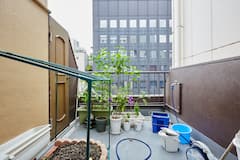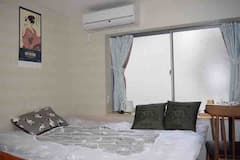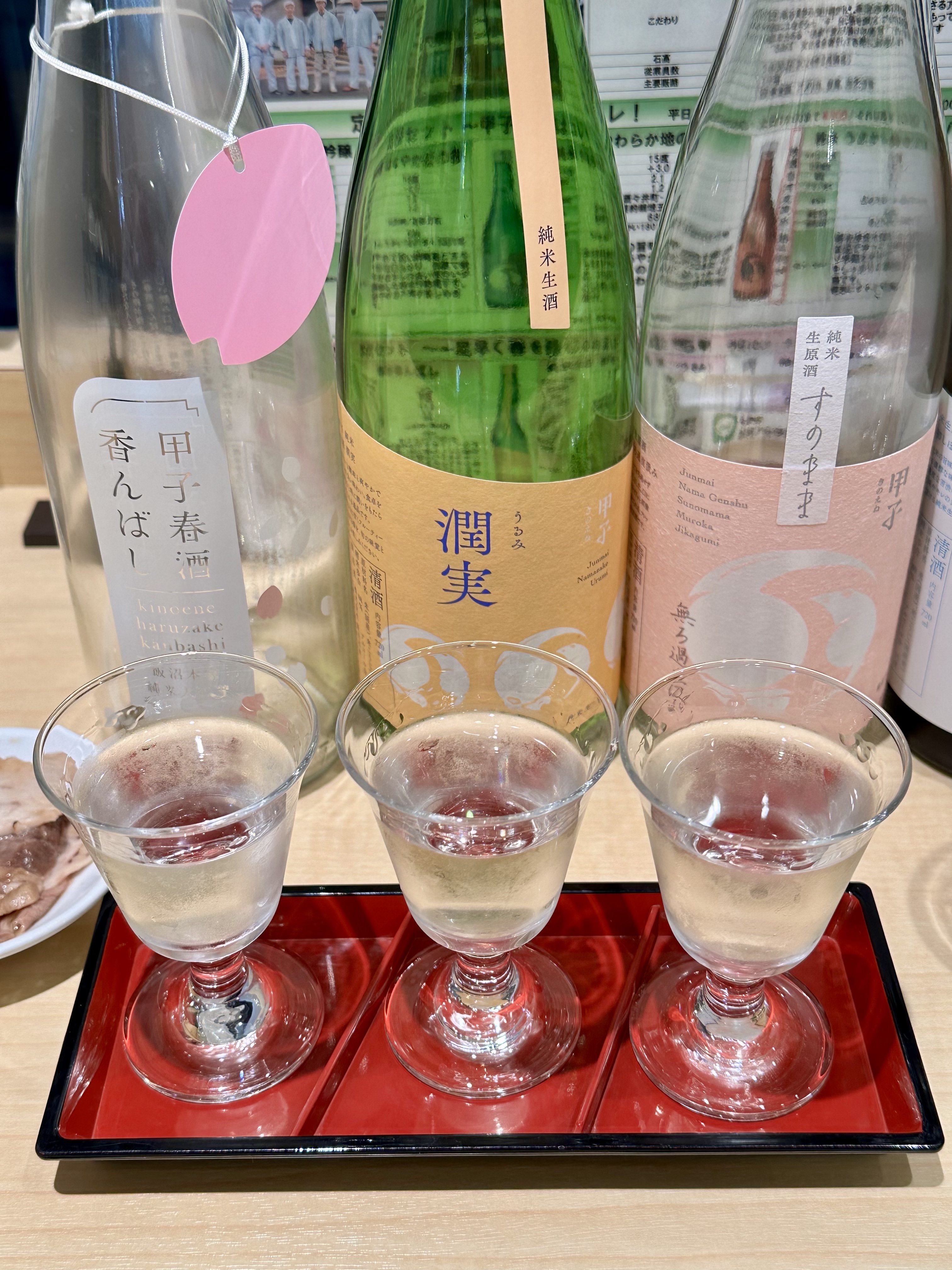Japan is littered with myriads of attractions that bring thousands of tourists into the country. Among these attractions are the summer festivals. Attending some of these celebrations is a great way to get a proper introduction into the rich Japanese culture and learn a new perspective about life through the Japanese lens, all while you get entertained. But with so many festivals to attend, most tourists usually find it a bit challenging to know which ones to attend and which ones to skip. Scroll down below for an overview of the top festivals in Tokyo, Japan and know what to prioritize depending on your taste.
1. Kanda Daikoku Matsuri
Editor's Note: There's no photo available at the time of writing
Daikoku is the Japanese god of fortune and every year, locals and visitors flock Kanda Daikoku Matsuri to offer their prayers to the god and have the lucky mallet passed over their heads so that they can receive good luck and live a good life in the coming years. This is usually a highly anticipated ceremony and one accompanied by a lot of Japanese rituals and traditions, including a display of the city’s best culinary delights prepared by some of the country’s top master chefs. This festival is more than just appeasing the gods, but a rich blend of practices that are not only educational but also fun and entertaining to watch.
Kanda Daikoku Matsuri
Address: Kanda Myojin Shrine
Takes Place: January
Price: Free
2. Fukagawa Hachiman Festival

The Fukagawa Hachiman Festival ranks at the same level as Kanda Matsuri and Sanno Matsuri in terms of significance, magnitude, pomp, and color associated with their celebrations. The five-day festival takes place in August, with the climax being held usually on the Sunday of the festival week. During the festival, teams of shrines compete against one another, while the crowd splashes water on them not just to cheer and refresh them, but also to purify them. You can think of this festival as a street water fight that takes place every three years and one laced with several other festivities.
Fukagawa Hachiman Festival
Address: Tomioka Hachiman Shrine, Tokyo, Japan
Takes place: August
Price: Free
3. Kanda Matsuri

Kanda Matsuri ranks among the top three festivals in Japan and it rightly deserves, owing to the magnitude and significance of the festival. During this festival, the streets of Tokyo are beautified by nearly 100 portable shrines as musicians, dancers, priests, and other performers hit the streets in their traditional costumes. Away from the streets, the neighborhoods also get busy with a myriad of events, celebrations, and performances to honor the local deity.
Kanda Matsuri
Address: Kanda Shrine, Tokyo, Japan
Takes Place: Weekend closest to May 15 (every odd numbered year)
You might be interested in these Airbnbs!
4. Koenji Awa Odori

Koenji Awa Odori is a dance festival organized on the streets of Tokyo on the last Saturday and Sunday of August to celebrate the returning ancestral spirits. The festival features a myriad of colorful performances involving dancers in traditional regalia and soothing tunes of traditional live music. In most cases, the dances and the merrymaking take place in seven different stages across the city, and this ensures that there is adequate variety for anyone looking for traditional entertainment for that day. Expect to indulge in lots of Japanese foods on that day and also get a ton of lessons about Japanese beliefs, especially when it comes to the spiritual world.
Kōenji Awa Odori
Address: Tokyo, Japan
Takes Place: August
Price: Free
Tokyo Tour Guide
Ayano
Hello! I am Ayano, a local host in Tokyo. I have been living in Tokyo for over 10 years, so I know a wide range of restaurants, bars, cafes, and tourist spots! Leave your Tokyo sightseeing to me. I have traveled to various countries and had unforgettable experiences. Being passionate about traveling, I really want to take you to the captivating places in Tokyo. As photography is my hobby, I will capture beautiful photos that will become lasting memories. Join my tour and let's explore Tokyo together!
Tours by Ayano
5. Setsubun (Bean-Throwing Festival)

Setsubun Festival in Tokyo is usually to mark the onset of spring. It is a festival that involves throwing roasted soybeans as a sign of repelling demons before spring starts and also to welcome good fortunes to people’s lives and homes. The fortune beans can also be eaten for good luck – eat the number of beans that corresponds to your age. (February)
Bean-Throwing Festival
Address: Zojoji Temple, Tokyo, Japan
Takes Place: February
Price: Free
6. Sanno Matsuri

Sanno Matsuri is one of the top three leading festivals in Tokyo and a great one to attending if you wish to dig deeper into the country’s cultural roots, including sampling the best of the cuisines the country has to offer. The festival is usually hosted by the Hie Shrine, which happens to be the guardian deity of the city. Some of the highlights of the event include portable shrines, a parade of palanquins, and dancers in traditional costumes snaking their way through the streets of Tokyo.
Sanno Matsuri
Address: Hie-jinja Shrine, Tokyo, Japan
Takes Place: June (every even numbered years)
Price: Free
7. Asakusa Samba Carnival

Asakusa Samba Carnival is a vibrant and eclectic festival reputed as the biggest samba carnival in Japan – a major crowd-puller known to bring in nearly half a million participants and spectators. The venue of the event is the Asakusa Area of Tokyo, and featured are several samba groups competing for the coveted samba crown that one group will eventually walk away with. If street parties excite you, then you have every reason to attend this carnival.
Asakusa Samba Carnival
Address: Asakusa Station, Tokyo, Japan
Takes Place: Last Saturday of August
Price: Free
8. Kurayami Matsuri (Darkness Festival)

Kurayami Matsuri or the Darkness Festival, happens to be one of the oldest festivals in the Tokyo region. The name is because it is a festival whose celebration is done deep in the night. The venue for the event is usually at the Okinatuma Shrines, which again, is not just one of the oldest shrines in Japan but also where the god kami resides.
Kurayami Matsuri/Darkness Festival
Address: Ōkunitama Shrine, Fuchu, Tokyo, Japan
Takes Place: April 30 to May 6
Price: Free
9. Mitama Matsuri

Yashukuni Shrine happens to be one of the most important shrines in Tokyo, and also one of the few shrines that have been dedicated to Japanese who served in the army. Currently, the shrine is home to more than two million men, women, children, and pets. During the Mitama Matsuri, the shrine gets littered by thousands of lanterns, creating an impressive visual treat. The four-day festival also features lots of traditional dances and performances, as well as thousands of vendors peddling all manner of street foods to keep the attendees satisfied throughout the four days of the celebration.
Mitama Matsuri
Address: Yasukuni Shrine, Tokyom Japan
Takes Place: July 13 to 16
Price: Free
10. Harajuku Omotesando Super Yosakoi Festival [Last event in 2019]

Harajuku Omotesando Super Yosakoi Festival is a two-day street event and one you should never miss if you want to get immersed in the depth and the full scope of the Japanese traditional Yosakoi dance. The event usually attracts nearly 100 teams of dancers who come to battle it out to be crowned the best Yosakoi dance group in Tokyo. Accompanying the event is lots of street foods that will give you a good introduction to the culinary prowess of Tokyo and that of the neighboring regions.
Harajuku Omotesando Super Yosakoi Festival
Address: Meiji Jingu Shrine, Tokyo, Japan
Takes Place: August
Price: Free
11. Sakura Festival at Ueno Park

The Sakura Festival is held every year between late March and early April and it is a countrywide celebration for the beautiful views of the cherry blossoms. In Tokyo, the venue for the event is Ueno Park. The event is another mega crowd-puller in Tokyo, given that it normally has a lot to offer in terms of entertainment. The top highlights include boat rides on the lake, viewing lots of cherry trees, and eating plenty of food from the food stalls.
Sakura Festival, Ueno Park
Address: Ueno Park, Tokyo, Japan
Takes Place: March or April
Price: Free
12. Sanja Matsuri

This is another unruly annual festival that takes the streets of Tokyo by storm in May every year. The festival involves parades with more than one hundred mikoshis that are paraded through the streets thousands of musicians, geishas, and lion dancers in traditional costumes following suite. The atmosphere is usually eclectic and the event is increasingly becoming popular with tourists in the city. Some travel from far and wide to come and participate in this street carnival.
Sanja Matsuri
Address: Asakusa Shrine, Tokyo, Japan
Takes Place: May
Price: Free
13. Akasaka Hikawa Matsuri

Akasaka Hikawa Matsuri may rank low when comparing the pomp, color, and vigor witnessed in the other celebrations, it is one of the best community-based festivals in Tokyo. It is a low-key event that brings together community members within a neighborhood to pay respects to their respective guardian deities. It means that every community will have their festivals at their respective shrines. Some of the notable highlights of the festival include parading of portable shrines, street food stalls, and lots of entertainment. They are very intimate celebrations, and not like the rowdy crowds you might have probably witnessed with most of Tokyo’s festivities.
Akasaka Hikawa Matsuri
Address: Hikawa Shrine, Tokyo, Japan
Takes Place: September
Price: Free
14. Asakusa Tori No Ichi

Preparations for the New Year in Japan usually start as early as November, and Asakusa Tori No Ichi is one such celebration they use to do so. It normally takes place in Roosters Days in November and it is a celebration to thank the nearly ending year and to also pray for peace, good health, and prosperity in the coming year. One of the major highlights of the festival is the open-air market fair where attendees buy kumade believed to be prosperity charms which will bring them wealth in the coming years.
Asakusa Tori No Ichi
Address: Ootori Jinja Shrine, Tokyo, Japan
Takes Place: November
Price: Free
15. Asakusa Hagoita-Ichi Festival
Editor's Note: There's no photo available at the time of writing
This is an open-air market fair held at the end of every year where vendors in more than 50 stalls come together to sell various merchandise befitting the New Year’s celebrations. One of the most popular items you will find on this market is the hagoita. This is an ornament made from the wooden paddle and decorated with well-known Japanese characters such as kabuki, anime, and other prominent Japanese celebrities. The reason why Japanese buy the hagoita is from the belief that it can block bad luck, especially at the beginning of a new year when all people want is good luck and prosperity.
Asakusa Hagoita-Ichi Festival
Address: Sensoji Temple, Tokyo, Japan
Takes Place: December
Price: Free
16. Jimbocho Book Festival

Before you are made to believe that all Tokyo festivals take place on the streets, markets, and neighborhoods, here is the Jinbocho Book Festival that deviates completely from the festival norms in Japan. If you are passionate about the printed word, then be sure to attend this festival in October. Jinbocho is a neighborhood in Tokyo and it is littered with bookshops making it the preferred joint for reading enthusiasts in the city. This festival is a week-long event where all the shops offer unbelievable bargains on their books. All the shop fronts become decorated with all manner of books and it is without a doubt the best time to go book hunting with little money.
Jimbocho Book Festival
Address: Jimbocho Station, Jimbocho, Central Tokyo, Japan
Takes Place: October to November
Price: Free
17. Hinode Matsuri (Sunrise Festival)

The Sunrise Festival is an annual event held on the 8th of May every year. The venue of the event is the Hinode Matsuri – a shrine located right at the heart of Chichibu-Tama-Kai National Park and at an altitude of 929 meters (3,047 feet) above the mean sea level. The festival features a solemn procession to the shrine, with Shinto music and dance performed at the tail-end of the festival. Other than indulging in Japanese traditions that will be at play during the festival, you will also be treated with a breathtaking bird’s view of the Tokyo City owing to the elevation of the shrine.
Hinode Matsuri/Sunrise Festival
Address: Musashi-Mitake-jinja Shrine, Tokyo, Japan
Takes Place: May 8
Price: Free
18. Tokyo Bay Fireworks

The Tokyo Bay Fireworks Festival is a brilliant display of fireworks and one of the most amazing you will ever see anywhere in the world. The location is usually the splendid Tokyo Bay, from where more than 12,000 explosions light up the night skies, creating exceedingly satisfying views. The recent years have seen the attendance to the event rise steadily, with the last one estimated to have attracted up to one million visitors.
Tokyo Bay Fireworks
Address: Tokyo Bay, Central Tokyo, Japan
Takes Place: July and August
Price: Free
19. Tokyo Jidai Matsuri

Also known as the Festival of Eras, Tokyo Jidai Matsuri is a historical event for commemorating the city’s rich history and culture spanning the Heian era to the Meiji era. The event features a street parade that begins behind Sensonji Temple and snakes its way along Umamichi-Dori, Kaminarimon-doria and Asakusa Department Store before ending in Asakusa Tawaramachi. The participants of the parade are made up of more than 1,500 civilians clothed in the emperor, samurai and ruler’s consumes. Though very crowded, the atmosphere is always lovely, and the parade is very gratifying to see and follow along. (November 3rd)
Tokyo Jidai Matsuri
Address: Asakusa Sensoji Temple, Asakusa, Taito City, Tokyo 111-0032, Japan
Takes Place: November 3
Price: Free
20. Shishi Matsuri (Lion Dance Festival)

The Lion Dance Festival is an annual event held at the Namiyoke Inari Shrine every June. It is a festival whose origin can be traced back to hundreds of years when a divine entity emerged from the ocean to calm down the winds and the waves when the people started praying to it. It is believed that the entity, which took the form of a lion, winds, and waves, and this is the reason why lion heads are used symbolically during the celebrations. Other than the lion head parades, the festival also features a lot of stalls dealing in food and various merchandise lined on either side along the procession.
Shishi Matsuri/ Lion Dance Festival
Address: Namiyoke Inari Shinto Shrine, Tokyo, Japan
Takes Place: June
Price: Free
Celebrate Japanese culture by attending Tokyo festivals

Read through the above list of the top festivals in Tokyo, Japan so that you can know which ones coincide with your visit to the city. By attending the festivals, you not only get entertained but also get a chance to learn more about the incredibly rich culture of the Japanese.
History
Get Trip101 in your inbox
Unsubscribe in one click. See our Privacy Policy for more information on how we use your data
























Create an account to